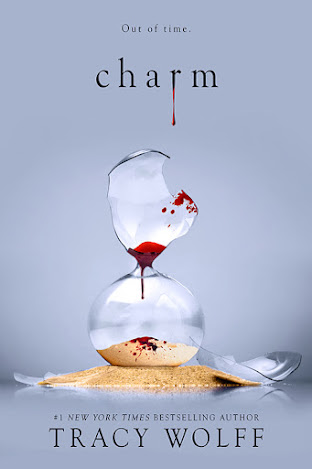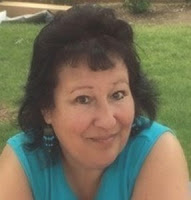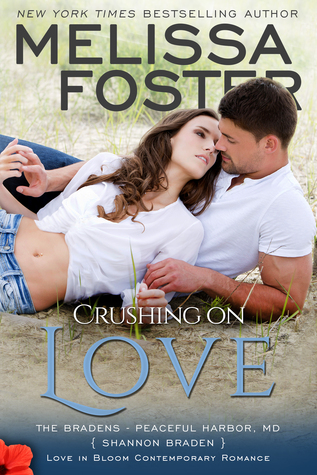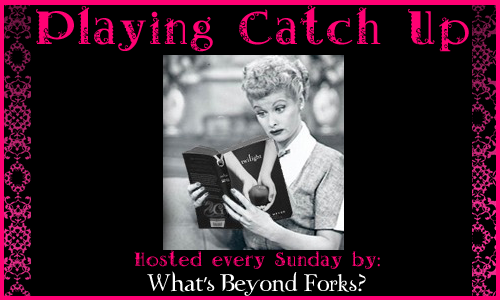The Glittering Court is the first book in The Glittering Court series by Richelle Mead. This isn't
. Not even close. So, don't expect that. That's not a bad thing though. This is its own story.
Adelaide (aka Elizabeth) comes from Osfrid, a place very much like England and is escaping to Adoria, a place very much like the USA. So, even thought it is fantasy fiction in that respect, it felt more like a historical fiction. I like both genres so, I was happy either way.
Adelaide is a brave girl. She wants to escape a betrothal and better her life. I don't know that the potential circumstances for these women would necessarily be better than where they came from, especially Adelaide since she's high society, but at least this is her choice. Unlike the marriage, that she was being forced into. I loved Adelaide's friends. In fact, I think her friendships were my favorite thing about this book.
With its humor, adventure, drama, and romance, The Glittering Court had something to entertain a wide variety of audiences.
Chapter 1
I’d never planned on stealing someone else’s life.
Really, at a glance, you wouldn’t think there was anything wrong with my old life. I was young and healthy. I liked to think I was clever. I belonged to one of the noblest families in Osfrid, one that could trace its bloodline back to the country’s founders. Sure, my title might have been more prestigious if my family’s fortune hadn’t evaporated, but that was easily fixed. All I had to do was marry well.
And that was where my problems started.
Most noblemen admired a descendant of Rupert, First Earl of Rothford, great hero of Osfrid. Centuries ago, he’d helped wrest this land from savages, thus forming the great nation we enjoyed today. But few noblemen admired my lack of resources, especially in these times. Other families were fighting their own financial crises, and a pretty face with an exalted title no longer held the appeal it once might have.
I needed a miracle, and I needed one fast. “Darling, a miracle’s happened.”
I’d been staring at the ballroom’s velvet-embossed wallpaper as dark thoughts swirled in my head. Blinking, I returned my attention to the noisy party and focused on my grandmother’s approach. Though her face was lined and her hair pure white, people always remarked on what a handsome woman Lady Alice Witmore was. I agreed, though I couldn’t help but notice she’d seemed to age more in the years since my parents had died. But just now, her face was alight in a way I hadn’t seen in some time.
“How, Grandmama?”
“We have an offer. An offer. He’s everything we’ve hoped for. Young. A substantial fortune. His family line’s as prestigious as yours.”
That last one caught me by surprise. The blessed Rupert’s line was tough to match. “Are you sure?”
“Certainly. He’s your . . . cousin.”
It wasn’t often that words failed me. For a moment, all I could think of was my cousin Peter. He was twice my age—and married. By the rules of descent, he would be the one to inherit the Rothford title if I died without children. Whenever he was in town, he’d stop by and ask how I was feeling.
“Which one?” I asked at last, relaxing slightly. The term “cousin” was sometimes used loosely, and if you looked far enough in the family trees, half the Osfridian nobility was related to the other half. She could be referring to any number of men.
“Lionel Belshire, Baron of Ashby.”
I shook my head. He was no one I knew.
She linked my arm with hers and drew me toward the opposite side of the ballroom, winding our way through some of the city’s most powerful people. They were swathed in silks and velvets, adorned with pearls and gems. Above us, crystal chandeliers covered the entire ceiling, like our hosts were trying to outdo the stars. Such was life among Osfro’s nobility.
“His grandmother and I were both ladies in the Duchess of Samford’s coterie, back in the old days. He’s only a baron.” Grandmama leaned her head toward me to speak more quietly. I noted the pearl-studded cap she wore, in good shape but unfashionable for at least two years. She spent our money on clothing me. “But his blood is still good. His line comes from one of Rupert’s lesser sons, though there was some scandal that Rupert might not actually have been his father. His mother was noble, though, so either way, we’re covered.”
I was still trying to process that when we came to a halt in front of a floor-to-ceiling window that overlooked Harlington Green. A young man stood with a woman my grandmother’s age, speaking in low tones. Upon our arrival, they both looked up with keen interest.
Grandmama released my hand. “My granddaughter, the Countess of Rothford. My darling, this is Baron Belshire and his grandmother, Lady Dorothy.”
Lionel bent over and kissed my hand while his grandmother curtseyed. Her deference was a show. Sharp eyes raked over every part of me. If propriety had allowed it, I think she would have examined my teeth.
I turned to Lionel as he straightened. He was the one I had to size up. “Countess, it’s a pleasure to meet you. It’s a shame this hasn’t happened sooner, seeing as we’re family. Descendants of Earl Rupert and all that.”
Out of the corner of my eye, I saw Grandmama arch a skeptical eyebrow.
I gave him a demure smile, not deferential enough to diminish my superior rank but enough to make him think his charm had flustered me. His charm, of course, was yet to be assessed. At a glance, it might be all he had going for him. His face was long and pointed, his skin sallow. I would have expected at least a flush, considering how the crush of bodies had heated the room. The sagging of his narrow shoulders gave the impression he was about to cave in upon himself. None of it mattered, though. Only the marriage logistics did. I’d never expected to marry for love.
“We’re definitely overdue for a meeting,” I agreed. “Really, we should all be having regular Rupert reunions, as a tribute to our progenitor. Get everyone together and have picnics on the green. We could do three-legged races, like the country folk do. I’m sure I could manage it with the skirts.”
He stared at me unblinkingly and scratched his wrist. “Earl Rupert’s descendants are spread out all over Osfrid. I don’t think a gathering of that sort would be feasible. And it’s not just unseemly for nobility to do those three-legged races; I don’t allow the tenants on my estates to do such things either. The great god Uros gave us two legs, not three. To suggest otherwise is an abomination.” He paused. “I don’t really approve of potato-sack races either.”
“You’re right, of course,” I said, keeping the smile fixed on my face. Beside me, Grandmama cleared her throat.
“The baron has been very successful with his barley production,” she said with forced cheer. “Quite possibly the most successful in the country.”
Lionel scratched his left ear. “My tenants have converted more than eighty percent of the land to barley fields. We recently bought a new estate, and those lands too now have a booming crop. Barley as far as the eye can see. Acres and acres. I even have my house servants, in both estates, eat it every morning. To boost morale.”
“That’s . . . a lot of barley,” I said. I was starting to feel sorry for his tenants. “Well, I hope you let them splurge every once in a while. Oats. Rye, if you’re feeling exotic.”
That previous puzzled look returned to his face as he scratched his right ear. “Why would I do that? Barley is our livelihood. It’s good for them to remember that. I hold myself to the same standard—a higher one, actually, as I make sure to include a portion of barley in all of my meals. It sets a good example.”
“You’re a man of the people,” I said. I eyed the window beyond him, wondering if I could jump out of it.
An awkward silence fell, and Lady Dorothy tried to fill it. “Speaking of estates, I understand you just recently sold your lastone.” Here it was, a reminder of our financial situation. Grandmama was quick to defend our honor.
“We weren’t using it.” She lifted her chin. “I’m not so foolish as to waste money on an empty house and tenants who’ve grown lazy without supervision. Our town house here in the city is much more comfortable and keeps us close to society. We were invited to court three times this winter, you know.”
“Winter, of course,” said Lady Dorothy dismissively. “But surely summers in the city are dull. Especially with so much of the nobility at their own estates. When you marry Lionel, you’ll live in his Northshire estate—where I live—and want for nothing. And you may plan as many social gatherings as you like. Under my close supervision, of course. It’s such a lovely opportunity for you. I mean no offense— Countess, Lady Alice. You maintain yourselves so well that no one would guess your true situation. But I’m sure it’ll be a relief to be settled into better circumstances.”
“Better circumstances for me. A better title for him,” I murmured. As we spoke, Lionel first scratched his forehead and then his inner arm. That second bout went on for some time, and I tried not to stare. What was going on? Why was he itching so much? And why was it happening all over his whole body? I couldn’t see any obvious rashes. Worse, the more I watched him, the more I suddenly wanted to scratch. I had to clasp my hands together to stop myself.
The excruciating conversation went on for several more minutes as our grandmothers made plans for the nuptials I’d only just learned about. Lionel continued to scratch. When we finally extracted ourselves, I waited all of thirty seconds before voicing my opinion to Grandmama.
“No,” I said.
“Hush.” She smiled at various guests we knew as we walked to the ballroom’s exit and told one of our host’s manservants to order our carriage around. I bit off my words until we were safely alone inside it. “No,” I repeated, sinking back into the carriage’s plush seat.
“Absolutely not.”
“Don’t be so dramatic.”
“I’m not! I’m being sane. I can’t believe you accepted that offer without consulting me.”
“Well, it was certainly difficult choosing between that and your many other offers.” She met my glare levelly. “Yes, dear, you’re not the only one around here who can be pert. You are, however, the only one who can save us from eventual ruin.”
“Now who’s being dramatic? Lady Branson would take you with her into her daughter’s household. You’d live very well there.”
“And what happens to you while I’m living very well?”
“I don’t know. I’ll find someone else.” I thought back to the flurry of guests I’d met at the party this evening. “What about that merchant who was there? Donald Crosby? I hear he’s amassed a pretty big fortune.”
“Ugh.” Grandmama rubbed her temples. “Please stop talking about the nouveau riche. You know how it gives me a headache.”
I scoffed. “What’s wrong with him? His business is booming. And he laughed at all my jokes—which is more than can be said for Lionel.” “You know what’s wrong with Mister Crosby. He should never have been at that party. I don’t know what Lord Gilman was thinking.” She paused as a particularly large pothole in the cobblestone street caused our carriage to lurch. “How do you think your exalted ancestor Rupert
would feel about you mingling his line with such common blood?”
I groaned. It seemed as though, lately, we couldn’t have a conversation without invoking Rupert’s name. “I think someone who followed his lord across the channel to carve out an empire would place a pretty big emphasis on keeping one’s self-respect. Not selling it out to a boring cousin and his tyrant grandmother. Did you count how many times she said ‘under my close supervision’ when we were talking about the future? I did. Five. Which is seven less times than Lionel scratched some body part.”
Grandmama’s expression grew weary. “Do you think you’re the first girl who’s had an arranged marriage? Do you think you’re the first girl to resent it? Stories and songs are full of tales of woeful maidens trapped in such circumstances who escape to a glorious future. But those are stories. The reality is that most girls in your situation . . . well, endure. There’s nothing else you can do. There’s nowhere else you can go. It’s the price we pay for this world we live in. For our rank.”
“My parents would have never made me endure,” I grumbled.
Her eyes hardened. “Your parents and their frivolous investments are the reason we’re in this situation. We’re out of money. Selling the Bentley estate has kept us living as we always have. But that’s going to change. And you won’t like it when it does.” When my obstinate glare continued, she added, “You’ll have people making choices for you your entire life. Get used to it.”
Our home was located in a different—but equally fashionable— district of the city from the party. Upon our arrival, servants swarmed to attend us. They helped us out of the carriage, took our wraps and shawls. I had my own flock of maidservants who accompanied me to my suite to remove my formal attire for me. I watched as they smoothed the red velvet overdress, with its trumpet sleeves and gold embroidery. They hung it up with countless other decadent frocks, and I found myself staring at the bureau after they’d left. So much of our family’s fading wealth spent on clothes that were supposed to help me achieve the opportunity to change my life for the better.
My life was certainly about to change, but for the better? That I was skeptical of.
And so, I treated it as though it wasn’t real. It was how I’d dealt with my parents’ deaths as well. I’d refused to believe they were gone, even when faced with the tangible proof of their graves. It wasn’t possible that someone you loved so much, someone who filled up so much of your heart, could no longer exist in the world. I tried convincing myself that they would walk through my door one day. And when I couldn’t make myself believe that, I simply didn’t think about it all.
That was how I dealt with Lionel. I put him out of my mind and went on with my life as though nothing at that party had ever happened.
When a letter came from Lady Dorothy one day, I finally had to acknowledge his existence again. She wanted to confirm a date for the wedding, which was to be expected. What wasn’t expected was her directive to cut our household staff in half and get rid of the majority of our possessions. You won’t need them when you get to Northshire, she wrote. The staff and items you need will be provided, under my close supervision.
“Oh, sweet Uros,” I said when I’d finished reading.
“Don’t take the god’s name in vain,” Grandmama snapped. Despite her sharp words, I could see the strain on her. Living under someone else’s thumb wasn’t going to be easy for her either. “Oh. And Lionel sent you a present.”
The “present” was a container of a proprietary barley cereal blend he ate each morning, with a note saying it would give me a taste of what was to come. I wanted to believe he’d intended the pun, but I sincerely doubted it.
Grandmama began fretting about how to split up the household as I walked out of the room. And I kept walking. I walked out of the town house, out through the front courtyard. I walked right out through the gate that sheltered our property from the main thoroughfare, earning a puzzled look from the servant who was manning it.
“My lady? Is there something I can help you with?”
I waved him back when he started to rise. “No,” I said. He glanced around, uncertain what to do. He’d never seen me leave our property alone. No one ever had. It wasn’t done.
His confusion kept him where he was, and I soon found myself swallowed up in the foot traffic moving about the street. It wasn’t the gentry, of course. Servants, merchants, couriers . . . all the people whose labor helped the city’s rich survive. I fell in step with them, unsure of where I was going.
Some crazy part of me thought maybe I should go make an appeal to Donald Crosby. He’d seemed to like me well enough in our minutes-long conversation. Or maybe I could seek passage some- where. Go off to the continent and charm some Belsian noble. Or maybe I could just lose myself in the crowd, one more anonymous face to blend into the city’s masses.
“Can I help you, my lady? Did you get separated from your servants?”
Apparently not so anonymous.
I’d ended up on the edge of one of the city’s many commercial districts. The speaker was an older man who carried parcels on his back that looked far too heavy for his slight frame.
“How do you know I’m a lady?” I blurted out.
He grinned, showing a few missing teeth. “Ain’t too many out alone dressed like you.”
I glanced around and saw he was right. The violet jacquard dress I wore was a casual one for me, but it made me stand out in the sea of otherwise drab attire. There were a few others of higher classes out shopping, but they were surrounded by dutiful servants ready to shield them from any unsavory elements.
“I’m fine,” I said, pushing past him. But I didn’t get very far before someone else stopped me: a ruddy-faced young boy, the kind who made his living delivering messages.
“Need me to escort you home, m’lady?” he asked. “Three coppers, and I’ll get you out of all this.”
“No, I . . .” I let my words drop as something occurred to me. “I don’t have any money. Not on me.” He started to leave, and I called, “Wait. Here.” I pulled off my pearl bracelet and offered it to him. “Can you take me to the Church of Glorious Vaiel?”
His eyes widened at the sight of the pearls, but he hesitated. “That’s too much, m’lady. The church is only over on Cunningham Street.”
I pushed the bracelet into his hand. “I have no idea where that is. Take me.”
It turned out to be only about three blocks away. I knew all the major areas of Osfro but little about how to travel between them. There’d never been any need to know.
There were no services today, but the main doors were propped slightly open, welcoming any souls in need of counsel. I walked past the elegant church, out to the graveyard. I moved through the common section, through the nicer section, and finally to the noble section. It had a wrought-iron gate surrounding it and was filled with monuments and mausoleums, rather than ordinary gravestones.
I might not know my way around Osfro streets, but I knew exactly where my family’s mausoleum was in this graveyard. My guide waited near the iron gate as I walked over to the handsome stone building labeled witmore. It wasn’t the biggest one on the property, but I thought it was one of the most beautiful. My father had loved art of all kinds, and we’d commissioned exquisite carvings of the six glorious angels on all the exterior walls.
I had no way to enter, not without prior arrangements with the church, and simply sat on the steps. I ran my fingers over the names carved amid those listed on the stone placard: Lord Roger Witmore, Sixteenth Earl of Rothford, and Lady Amelia Rothford. Above them, my grandfather’s name was listed alone: Lord Augustus Witmore, Fifteenth Earl of Rothford. My grandmother’s name would join his one day, and then the mausoleum would be full. “You’ll have to find your own place,” Grandmama had told me at my father’s funeral.
My mother had died first, catching one of the many illnesses that ran rampant in the poorer parts of the city. My parents had been greatly interested in investing in charitable establishments among the less fortunate, and it had cost them their lives, my mother getting sick one summer, my father the next. Their charities fell apart. Some said my parents had been saintly. Most said they’d been foolish.
I stared up at the great stone door, which held a carving of the glorious angel Ariniel, the gatekeeper of Uros. The work was gorgeous, but I always thought Ariniel was the least interesting of the angels. All she did was open the way for others and facilitate their journeys. Was there some place she’d rather be? Something else she’d rather do? Was she content to exist so that others could achieve their goals while she stayed at a standstill? Grandmama had said I’d always have choices made for me. Was that way of both humans and angels? The scriptures had never addressed such questions. Most likely they were blasphemous.
“My lady!”
I turned from that serene face and saw a flutter of color at the gate. Three of my ladies were hurrying toward me. Far beyond them, near the church’s entrance, I saw our carriage waiting. Immediately, I was swarmed.
“Oh, my lady, what were you thinking?” cried Vanessa. “Did that boy behave inappropriately?”
“You must be freezing!” Ada tossed a heavier cloak over my shoulders.
“Let me brush the dirt from your hem,” said Thea.
“No, no,” I said to that last one. “I’m fine. How did you find me?” They all began talking over one another, but it basically came down
to their noticing my disappearance and questioning the boy at our town house’s gate and pretty much every person I’d passed in my outing. I’d apparently made an impression.
“Your grandmother doesn’t know yet,” said Vanessa, urging me forward. She was the cleverest of them. “Let’s get back quickly.”
Before I stepped away, I looked back at the angel, back at my parents’ names. “Bad things are always going to happen,” my father had told me in his last year. “There’s no way to avoid that. Our control comes in how we face them. Do we let them crush us, making us despondent? Do we face them unflinchingly and endure the pain? Do we outsmart them?” I’d asked him what it meant to outsmart a bad thing. “You’ll know when the time comes. And when it does, you need to act quickly.”
The maids couldn’t stop fussing over me, even on the carriage ride home. “My lady, if you’d wanted to go, you should have just let us arrange a proper visit with a priest,” Thea said.
“I wasn’t thinking,” I murmured. I wasn’t about to elaborate on how the letter from Lady Dorothy had nearly given me a nervous breakdown. “I wanted the air. I decided I’d just walk over on my own.” They stared at me incredulously. “You can’t do that,” said Ada. “You can’t do that on your own. You . . . you can’t do anything on your own.”
“Why not?” I snapped, feeling only a little bad when she flinched. “I’m a peeress of the realm. My family name commands respect every- where. So why shouldn’t I be free to move everywhere? To choose to do whatever I want?”
None of them spoke right away, and I wasn’t surprised that it was Vanessa who finally did: “Because you’re the Countess of Rothford. Someone with a name like that can’t move among the nameless. And when it comes to who you are, my lady . . . well, that’s something we never have a choice in.”
Chapter 2
I realized then that I was taking the first approach to this “bad thing” with Lionel: I was letting it crush me. And so, I decided then and there that I would choose the nobler, un- flinching approach. I would endure the pain.
In the following weeks, I smiled and made my quips and acted as though our household wasn’t being torn apart. While the servants worked and worried about their futures, I calmly went about tasks that were appropriate to young noblewomen, painting pictures and planning my wedding attire. When callers came to wish us well, I sat with them and feigned excitement. More than once, I heard the arrangement referred to as a “smart match.” It reminded me of when I was six, when my mother and I had watched Princess Margrete’s wedding procession go by.
The princess had sat in a carriage, waving and stiffly smiling as she held hands with a Lorandian duke she’d only met the week before.
“She looks a little green,” I’d said.
“Nonsense. And if you’re lucky,” my mother had told me, “you’ll make a smart match like that.”
Would my mother have allowed this if she were still alive? Would this have turned out differently? Probably. A lot of things would’ve turned out differently if my parents were still alive.
“My lady?”
I looked up from the canvas I’d been painting, a field of purple and pink poppies copied from one of the great masters in the National Gallery. A page stood in front of me. From the tone of his voice, I could tell this wasn’t the first time he’d spoken to me.
“Yes?” I asked. The word came out a bit more harshly than I’d intended. I’d had an argument with Grandmama this morning about the dismissal of my favorite cook, and it still bothered me.
He bowed, relieved at finally being acknowledged. “There’s a gentleman caller here. He’s, um, making Ada cry.”
I blinked, wondering if I’d misheard. “I’m sorry, what?”
Thea and Vanessa sat beside me, busy with sewing. They looked up from their work, equally perplexed.
The page shifted uncomfortably. “I don’t really understand it my- self, my lady. It’s some sort of meeting arranged by Lady Branson. I think she was supposed to be here to supervise but was delayed by business. I settled them into the west drawing room, and when I returned to check on them, Ada was quite hysterical. I thought you would want to know.”
“Yes, certainly.”
And here I’d thought this would be a boring day.
The other ladies started to rise when I did, but I urged them to sit down. As I followed the page back into the house, I asked, “Do you have any idea what this so-called gentleman is here for?”
“Another position, I believe.”
I felt a small pang of guilt. Staff cuts had begun, and Ada was one of the ladies being dismissed from my entourage. I’d been able to keep only one. Lady Dorothy had assured me the replacements who’d been selected under her close supervision were exemplary, but I was pretty sure their chief function would be to spy on me.
As I made my way to the drawing room, I pondered what could have caused this unexpected morning drama. Lady Branson was my grandmother’s chief lady. If she’d arranged a position for Ada, I had to imagine it would be something respectable and not worthy of a breakdown.
“These weren’t tears of joy?” I asked the page, just to clarify.
“No, my lady.”
We entered the room, and sure enough, there was poor Ada, sitting on a sofa and sobbing into her hands. A man, his back to me, was bent over, trying awkwardly to comfort her by patting her shoulder. Immediately, my heart hardened as I wondered what kind of monster had brought this about.
“Lady Witmore, Countess of Rothford,” announced the page.
That startled both Ada and her guest. She lifted her face from her hands, still sniffling, and managed to rise for a small curtsey. The man also straightened, turning to look at me. As he did, the images I’d been building of some old, twisted scoundrel vanished.
Well, maybe he was a scoundrel, but who was I to say? And the rest of him . . . my eyes burned at the sight of him. Deep auburn hair swept back in a short, fashionable tail revealed a face with clean lines and high cheekbones. His eyes were an intense blue-gray, contrasting with skin tanned from being outdoors. That wasn’t fashionable among nobles, but I could’ve deduced he wasn’t one of us from a mile away. “Your ladyship,” he said, giving a proper bow. “It is a pleasure to meet you.”
I gestured the page away and sat down, a signal for the other two as well. “I’m not sure I can say the same, seeing as you’ve sent my lady-in-waiting into hysterics.”
A chagrined expression crossed that handsome face. “Er, that wasn’t my intent. I’m just as surprised as you. I’d been under the impression that Lady Branson had settled things with her.”
“She did,” exclaimed Ada. I could see new sobs bubbling up within her. “But now that it’s here . . . I just . . . I just don’t know if I want to go!”
He turned on a smile for her, one so confident and so practiced that I was certain he must use it regularly to get his way. “Well, a few nerves are understandable. But once you’ve seen how the other girls live at the Glittering Court—”
“Hold on,” I interrupted. “What is the Glittering Court?” It sounded vaguely brothelish, but that seemed unlikely if Lady Branson had arranged it.
“I’d be happy to explain it, my lady. Assuming you don’t find the logistics boring.”
I looked him over. “Believe me, there’s absolutely nothing about this situation I find boring.”
He turned that gallant smile on me, no doubt hoping it would win me over as it did others. It kind of did. “The Glittering Court is an exciting opportunity for young women like Ada, an opportunity that will transform their lives and—”
“Hold on one more time,” I said. “What’s your name?”
He stood and bowed again. “Cedric Thorn, at your service.” No title, but again, that didn’t surprise me. The more I studied him, the more intrigued I was. He wore a brown coat of light wool that flared slightly at the knee, longer than current trends. A brown brocade vest under the coat caught the light. It was a respectable, subdued outfit, one a prosperous merchant might wear, but a bright amber pin in the hat he held told me he wasn’t entirely without flair.
“My lady?” he asked.
I realized I’d been staring and offered a grand wave of my hand. “Please continue explaining this Gleaming Court of yours.”
“Glittering, my lady. And as I was saying, it’s an exciting opportunity for young women to move up in the world. Ada here is exactly the type of bright and promising girl we’re looking for.”
I raised an eyebrow at that. Ada was by far my most uninteresting maidservant. She was pretty, which, I’d learned, tended to be synonymous with “bright and promising” for most men.
He launched into what had to be a well-rehearsed speech. “The Glittering Court is a highly respected enterprise on both sides of the ocean. My father and my uncle founded it ten years ago after learning just how few women there are in Adoria.”
Adoria? That’s what this was about? I nearly leaned forward and then remembered myself. Still, it was hard not to be taken in. Adoria.
The country discovered across the Sunset Sea. Adoria. The very sound of it inspired adventure and excitement. It was a new world, a world far removed from the one in which I was required to marry my itching cousin—but also a world without galleries and theaters and luxuriously dressed nobility.
“There are plenty of Icori women there,” I remarked, feeling the need to say something.
Cedric’s smile broadened, warming his features. Were his eyelashes longer than mine? That certainly seemed unfair.
“Yes, but our colonists aren’t looking for savage Icori wives in kilts and tartans. Well,” he added, “most of our colonists aren’t looking for savage wives. I suppose there’s always someone who finds that appealing.”
I nearly asked what he found appealing and then again reminded myself I was a lady of exalted rank.
“Most of our settlers are looking for gentle, cultured Osfridian wives—especially those men who’ve made their fortunes there. Plenty set sail for Adoria with nothing more than the clothes on their backs and now have found success as businessmen and plantation owners. They’ve become pillars in their communities, men of prestige.” Cedric held up his hands grandly, a performer on his stage. “They want suitable wives to start families with. His Majesty wants it too. He’s ordered the founding of several other colonies and the expansion of current ones—but it’s very difficult when Osfridian men outnumber women three to one. When women do go, they’re usually ordinary, working-class girls who are already married. That’s not what the new nobility is looking for.”
“New nobility?” I asked. I was getting sucked into his pitch. It was a new experience, having someone else turn the powers of persuasion on me.
“The new nobility. That’s what we call them—these ordinary men who’ve found extraordinary greatness in the New World.”
“It’s very catchy. Did you come up with it?”
He looked surprised by the question. “No, my lady. My father did. He’s a master of publicity and persuasion. Far more so than me.”
“I find that incredible. Please—continue with your new nobility.” Cedric studied me for a beat, and there was something in his eyes.
A calculation, or maybe a reassessment. “The new nobility. They don’t need a title or right of birth to claim power and prestige. They’ve earned it through hard work and have become a nobility—of sorts— and now need suitably ‘noble’ wives. But since women of your rank aren’t exactly lining up to sail over, the Glittering Court has taken it upon itself to create a cohort of young women willing to transform. We take lovely girls like Ada here, girls of common birth, girls with no family—or maybe too much family—and we train them up to greatness.”
He’d smiled briefly when he made his comment about noblewomen lining up, like it was a joke between us. I felt a pang in my heart. Little did he know that just then, faced with a lifetime shackled to a sullen cousin and an overbearing grandmother-in-law, I would have given up my regal world and sailed to the colonies in an instant, savage conditions or no. Not that I could have ever made it to the docks without dozens of people trying to usher me back to my proper sphere of society.
Ada sniffled, reminding me she was still here. I’d known her for years, barely giving her a second thought. Now, for the first time ever, I felt jealous of her. She had a world—a new world—of potential and adventure opening up right before her.
“So. You’re going to take Ada to Adoria,” I said. It was difficult keeping my tone light, lest my envy show.
“Not right away,” said Cedric. “First, we have to make sure she’s trained up to Glittering Court standards. I’m sure she’s received some education in your service—but nothing to match your own. She’ll spend a year in one of my uncle’s manor houses with other girls her age, learning all sorts of things to make up for that. She’ll—”
“Wait,” I interrupted. My grandmother would’ve been appalled at the completely haphazard way I was managing this conversation, but this whole situation was too strange for me to get caught up in formalities. “You’re saying she’ll have an education that’ll match mine. In a year?”
“Not an exact match, no. But she’ll be able to pass herself off among upper classes—maybe even the nobility—after that time.”
Knowing Ada as I did, I was again skeptical, but urged him on. “Continue.”
“We’ll start by polishing up her basic education in reading and accounting, and then expand into other more genteel areas. How to run a household and manage servants. Music lessons. How to throw social engagements. What to talk about at social engagements. Art, history, philosophy. Foreign language, if there’s time.”
“That’s very extensive,” I said, casting a curious glance at Ada. “That’s why it takes a year,” Cedric explained. “She’ll live in one
of my uncle’s manors learning all these things and then sail over to Adoria with all the girls from the other manors. If she chooses to go.” At this, Ada finally came to life. Her head jerked up. “I don’t have to go?”
“Well, no,” said Cedric, a little surprised at the question. He produced a roll of paper from his coat—with a bit of a flourish, if I wasn’t mistaken. “At the end of your year, your contract states you can either choose to go to Adoria to have a marriage made for you or you can leave the Glittering Court, at which point we’ll find a suitable work arrangement to reimburse us for your education.”
Ada looked immensely more cheerful, and I realized she probably thought said arrangement would involve a job similar to what she had now.
“I’m guessing he means a workhouse or a factory,” I said. Her face fell. “Oh. But it’d still be here. In Osfrid.”
“Yes,” said Cedric. “If you want to stay. But honestly? Who’d pick those kind of long work hours over a chance to be on the arm of a wealthy, doting husband who’ll drape you in silks and jewels?”
“I don’t get to choose him,” she argued.
“That’s not entirely true. When you arrive in Adoria, you and the other girls will have a three-month period in which you’ll be presented to those eligible men who’ve shown interest in our jewels—that’s what my uncle calls the Glittering Court girls.” He turned his smile to its most dazzling, trying to reassure her. “You’ll love it there. The colonial men go crazy when we bring new girls. It’s a season of parties and other social engagements, and you’ll get a whole new wardrobe for it all—Adorian fashions are somewhat different from ours. If more than one man makes an offer for you, then you can choose the one you want.”
Once again, I found myself brimming with jealousy, but Ada still looked uncertain. No doubt she’d heard tales of danger and savagery about Adoria. And, in fairness, some weren’t unfounded. When settlers from Osfrid and other countries had landed in Adoria, there’d been terrible bloodshed between them and the Icori clans living there. Many of the Icori had been driven away, but we still heard stories of other tragedies: diseases, storms, and wild animals, to name a few.
But what were those things compared to the riches and greatness that Adoria offered? And wasn’t there danger everywhere? I wanted to shake some sense into her, to tell her she should take this opportunity and never look back. Surely there could be no greater adventure than this. But she’d never had a sense of adventure, never seen the promise of taking a chance on something she didn’t know. That was part of the reason I hadn’t picked her to come with me to Lionel’s household.
After much deliberation, she turned to me. “What do you think I should do, my lady?”
The question caught me unprepared, and suddenly, all I could think of was my grandmother’s words: You’ll have people making choices for you your entire life. Get used to it.
I felt myself softening. “You have to make your own choices— especially since you’ll be on your own once you leave my service.” I looked over at Cedric, and for the first time, I saw uneasiness on those striking features. He was afraid Ada was going to opt out. Did the Glittering Court have quotas to meet? Was he on the hook to come back with someone?
“Mister Thorn has made it all sound very lovely,” she replied. “But
I kind of feel like some trinket being bought and sold.” “Women always feel that way,” I said.
But in the end, Ada accepted Cedric’s offer anyway because, as she saw it, she had nowhere else to go. Over her shoulder I scanned the contract, which was mostly a more formal explanation of what Cedric had told us. When she signed, I did a double take.
“That’s your full name?” I asked. “Adelaide? Why don’t you go by that?”
She shrugged. “Too many letters. It took me years to learn to spell it.” Cedric seemed to struggle to keep a straight face. I wondered if he was starting to question this choice and if Ada could really be made
into part of his “new nobility.”
Contract in hand, he stood up and bowed to me. To her, he said, “I have other contracts to deliver this afternoon and some errands to run at the university. You can take the day to pack your things, and our carriage will come to retrieve you this evening and take you to your manor. My father and I will join you along the way.”
“Where is this manor?” I asked.
“I’m not sure which one she’ll be assigned to,” he admitted. “I’ll know by tonight. My uncle maintains four for the Glittering Court, with ten girls each. One is in Medfordshire. Two are in Donley, an- other in Fairhope.”
They were true country houses then, I noted, placing each location on a mental map. They were each at least half a day from where we were in Osfro.
He delivered a few more last-minute instructions before making motions to leave. I offered to walk him out, which was a bit un- orthodox, and took him back toward the garden I’d been in earlier. “University. So you’re a student then, Mister Thorn.”
“Yes. You don’t sound surprised by that.”
“It’s in your manner. And your coat. Only a student would set his own fashion standards.”
He laughed. “I didn’t. It’s actually an Adorian fashion. I’ve got to look the part when I go with the girls.”
“You get to go too?” Somehow, that made this entire thing even more agonizing. “You’ve been there before?”
“Not in years, but—”
He drew up short as we rounded a corner and heard more sniffling. Old Doris the cook was trudging toward the kitchen, trying not to cry as she walked.
“Don’t take this the wrong way . . .” Cedric began. “But there are a lot of tears in your household.”
I shot him a wry look. “Much is changing. Doris won’t be going with us either. She’s blind in one eye, and my cousin doesn’t want her.” He turned to study me, and I averted my gaze, not wanting him to see how much this decision pained me. In her condition, Doris wasn’t going to have an easy time finding work. It was another argument Grandmama had won. I was losing my edge.
“Is she good?” Cedric asked. “Very.”
“Excuse me,” he called out to her.
Doris turned in surprise. “M’lord?” Neither of us bothered to correct her error.
“Is it true that your services are for hire? I can understand if some- one else has already hired you on.”
She blinked, her one good eye focusing on him. “No, m’lord.” “There’s an opening over in one of the university’s kitchens. Four silvers a month and room and board. If you’re interested, it’s yours. Although if the thought of cooking for so many is daunting—”
“M’lord,” she interrupted, pulling herself up to her full but short height. “I have overseen seven-course dinners hosting a hundred nobles. I can handle swaggering boys.”
Cedric’s expression remained dignified. “Glad to hear it. Go to the university’s north office tomorrow and tell them your name. They’ll give you more information.”
Old Doris’s mouth dropped, and she looked to me for confirmation. I nodded encouragingly.
“Yes, yes, m’lord! I’ll go right after breakfast’s served. Thank you—thank you so much.”
“Well, that’s lucky,” I told him, once we were alone again. I certainly wouldn’t say so, but I thought it was incredibly kind of him to offer such a thing, let alone notice her. Most didn’t. “Lucky that there was an open position.”
“There isn’t, actually,” he said. “But I’ll stop by and talk to the office today. By the time I’m done, they’ll have an opening.”
“Mister Thorn, something tells me you could sell salvation to a priest.”
He smiled at the old adage. “What makes you think I haven’t?”
We reached the garden and were nearing the exit when he halted again. An expression of disbelief crossed his face, and I turned toward what had caught his eye. My poppies painting.
“That’s . . . Peter Cosingford’s Poppies. I saw it in the National Gallery. Except . . . ?” He trailed off, face full of confusion as he took in the canvas and the pigments beside it.
“It’s a copy. My attempt at a copy. I have others. It’s just something
I do for fun.”
“You make copies of great works for fun?” Belatedly, he added, “My lady?”
“No, Mister Thorn. That’s what you do.”
The smile on his face was genuine, and I found I liked it better than the show ones. “Well, I’m pretty sure I could never copy you.”
We’d reached the front gate, and his words made me come to a halt. It was less about their meaning than the way he’d said them. The tone. The warmth. I tried to think of a witty retort, but my normally quick mind had frozen up.
“And if you won’t take offense at me speaking openly . . .” he added quickly.
“I’d be disappointed if you didn’t.”
“It’s just . . . well, I’m a little disappointed I probably won’t ever get a chance to see you again.” Perhaps realizing that was too open, he gave a hasty bow. “Farewell, and best of luck to you, my lady.”
One of the guards outside the gate unlocked it for him, and I watched him walk out the gate, admiring the way the velvet coat hugged his body.
“But you will be seeing me again,” I murmured. “Just wait.”
Check out my review of other books by this author!
Richelle Mead is a New York Times and USA Today bestselling author of urban fantasy books for both adults and teens. Originally from Michigan, Richelle now lives in Seattle, Washington where she works on her three series full-time. Before becoming a writer, she considered a few different career paths. She received a liberal arts degree from the University of Michigan, an MA in Comparative Religion from Western Michigan University, and a Master in Teaching (Middle & High School English) degree from the University of Washington. In the end, she decided writing was the way for her but believes all of her education prepared her for it.
A life-long reader, Richelle has always had a particular fascination with mythology and folklore. When not writing,, she enjoys bad reality TV, traveling, trying interesting cocktails, and shopping for dresses. Lots of dresses. She is a self-professed coffee addict, fights a constant (and losing) battle with procrastination, and has a passion for all things wacky and humorous.
To learn more about Richelle Mead and her books, visit her
website and
blog.You can also find her on
Goodreads,
Facebook, and
Twitter.
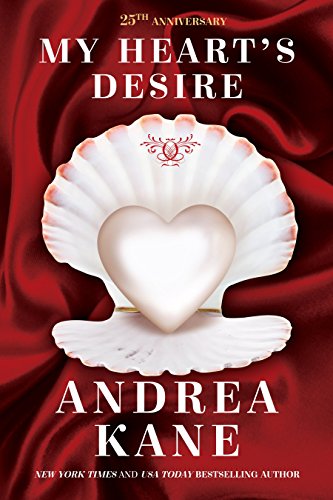





 Andrea Kane is the New York Times and USA Today bestselling author of twenty-seven novels, including thirteen psychological thrillers and fourteen historical romantic suspense titles.
Andrea Kane is the New York Times and USA Today bestselling author of twenty-seven novels, including thirteen psychological thrillers and fourteen historical romantic suspense titles.






